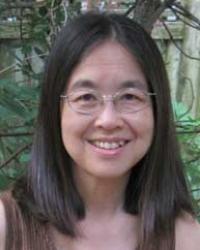
We are addressing issues of human health in space via two lines of investigation. The first focuses on strategies for combatting genome damage due to ionizing radiation. This effort stems from our study of ultraconserved elements (UCEs), which we believe hold a surprising potential to protect our genome from deleterious rearrangements. The second will explore how the extreme environment of space might affect chromatin structure. This effort will use our Oligopaint technologies, including OligoSTORM and OligoDNA-PAINT, to visualize chromosomal DNA at ≤ 20 nm resolution. Currently, our work uses mammlian, C. elegans (in collaboration with the Kennedy laboratory), and Drosophila.
Beliveau BJ, Boettiger AN, Avendaño MS, Jungmann R, McCole RB, Joyce EF, Kim-Kiselak C, Bantignies F, Fonseka CY, Erceg J, Hannan MA, Hoang HG, Colognori D, Lee JT, Shih WM, Yin P, Zhuang X, Wu C-t. Single-molecule super-resolution imaging of chromosomes and in situ haplotype visualization using Oligopaint FISH probes. Nat Commun 2015 6:7147 doi: 10.1038/ncomms8147. PMCID: PMC4430122
McCole RB, Fonseka CY, Koren A, Wu C-t. Abnormal dosage of ultraconserved elements is highly disfavored in healthy cells but not cancer cells. PLoS Genetics 2014; 10:e1004646. PMCID: PMC4207606
Beliveau BJ*, Joyce ER*, Apostolopoulos N, Yilmaz F, Fonseka CY, McCole RB, Chang Y, Li JB, Senaratne TN, Williams BR, Rouillard J-M, Wu C-t. A versatile design and synthesis platform for visualizing genomes with Oligopaint FISH probes. Proc. Nat. Acad. Sci. USA 2012; 109:21301-6. PMCID: PMC3535588
